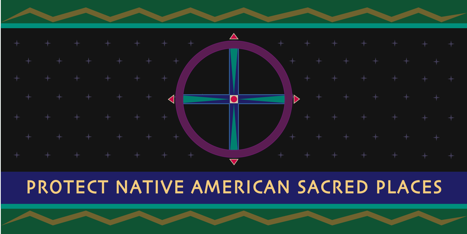
We wanted to make sure that our Native American neighbors know we respect and care about potential concerns with our members' outdoor activities on culturally-important locations. We reached out every tribe in our state and learned of no such conflicts.
HISTORICAL BACKGROUND
In late 2014, Congress expanded Wilderness protection for many areas in Washington. One of the locations protected was Rattlesnake Mountain, outside of the Hanford Reach National Monument. This offended multiple Native American tribes because it's a sacred site known as 'Laliik', and tribes in the area didn't want intrusions. By "protecting" this land, Congress took away the tribes' ability to protect that experience from tourism. Although we are legally "entitled" to access this area, we should not do so in a way that is disrespectful of our Native American neighbors (and there is no route or activity of the Mountaineers that currently goes there).
It goes without saying that Native Americans have had a difficult time protecting their lands over the history of the United States. Once the reservation system was created and the legal status of Native Americans was firmly entrenched in place within the US legal system, sacred sites remained a discrete issue fought for by those of Indian descent. In 1988, the US Supreme Court suggested that the government's "right" to use its lands should not discourage it from accommodating Native religious practices but held that there was no legal cause of action Native Americans could use under the American Indian Religious Freedom Act to protect such religiously important areas. See Lyng v. Northwest Indian Cemetery Protective Association, 485 U.S. 439 (1988).
This has not stopped the efforts of Native Americans on this issue, nor should it stop anyone else's. Each year, National Sacred Places Prayer Days are organized across the country. As a result of continued advocacy, five federal entities – Defense, Interior, Agriculture, Energy and the Advisory Council on Historic Preservation – signed a five-year Memorandum of Understanding in 2012 “to improve the protection of and tribal access to Indian sacred sites through improved interdepartmental coordination and collaboration.” However, the MOU has been criticized as doing "nothing of substance to protect sacred places, but provides for recommendations and a report by the end of 2017, the first year of the next administration."
As far as our research indicated, only Rattlesnake Mountain ("Laliik") and Snoqualmie Falls are religiously critical locations in Washington state where we might even theoretically have members. However, the point of this task was to confirm whether that was accurate.
The goal
We wanted to identify locations in Washington where our recreational practices might be considered rude or insulting to Native tribes. We wanted to identify the cultural implications of accessing such sacred locations, look at whether our trips interfere with them, and propose solutions. Hopefully, our practices do not engage in anything the tribes would not support, but if we did, this was meant to be an affirmative step towards recognizing and addressing it. If there are conflicts, we can resolve them by either requesting permission from the tribes or, if there is no respectful solution, posting information about the cultural intrusions on our website and/or proposing that Mountaineers trips not be permitted there. Here's an example of an issue at a location that we could point out on our website that might not change our practices but could educate guests to the area (depending on further research into the issue).
Although we may feel confident as an organization that we have always been, and always will be, sensitive to these issues; there is nothing like a documented, systemic approach to to confirm those feelings. Not only might this confirm our beliefs (assuming no changes need to be considered), it would send a message to the greater community that we are serious about our dedication to ensuring that ALL people "explore, conserve, learn about and enjoy the lands and waters of the Pacific Northwest and beyond."
The Outreach and Response
A letter inviting tribal officials to share any concerns with us was emailed and mailed to every tribe in Washington state, both those that are federally recognized and those that are not. The invitation described the intent, as stated here and included:
Although we enforce and promote “leave no trace” principles, we wanted to ask you if there are other concerns your community might have about our members travelling across the state to access various parks, wilderness areas, and waterways...We would like to ensure that our efforts remain as respectful of your community’s cultural practices as possible.*
*We added the following to address issues of privacy: "If any of this information is meant to be private, we will not publicize anything that you wish to remain that way. We simply mean to let you know that we care about these issues and are willing to review our practices if your community has concerns."
Of the 36 tribes we reached out to, only the Cowlitz responded. No practices of concern were identified, although the conversation fell off as it seemed like tribal officials had far more pressing matters to deal with (which we understand). Hopefully, however, the message was sent that The Mountaineers care and welcome dialogue if concerns ever arise.
If you become aware of any such concerns or would like to contribute to this effort further, please email Member Services (info@mountaineers.org) to give us the opportunity to review our practices.
Our mission is served not only by promoting access to nature, but by also appreciating it in a way that respects everyone and their rights.
 The Mountaineers
The Mountaineers
